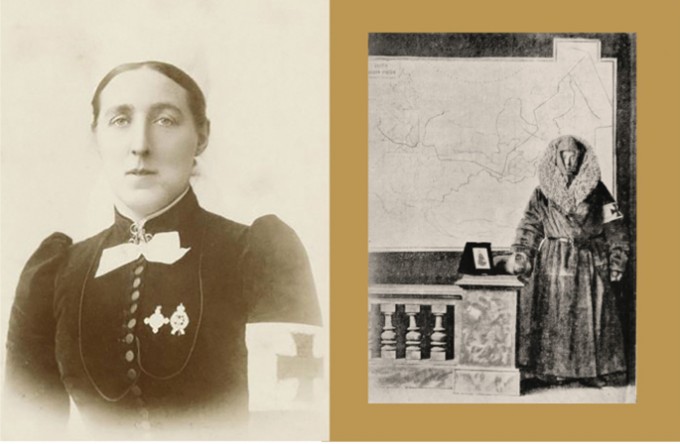Profiles In Nursing
Kate Marsden (1859-1931), English Nurse Who Crusaded Against Leprosy
An 11,000-mile trek across Siberia and a persistent scandal

In 1891, English nurse Kate Marsden made a grueling 11,000-mile trek across Siberia in search of a rare herb purported to cure leprosy. She survived this perilous adventure only to find herself in a different sort of predicament when she returned home.
Around the World
Born in Middlesex, England, Kate Marsden began her training as a nurse at Tottenham Hospital at age 17. In 1877, at the age of 18, she joined a group of nurse volunteers in Bulgaria, treating casualties of the Russo-Turkish War.
After returning to England, Marsden continued working as a nurse in London and later in Liverpool. In 1885, she moved to New Zealand to care for her dying sister and remained there for the next four years, briefly serving as lady superintendent of Wellington Hospital and becoming a well-known nurse lecturer. She also had several romantic relationships with other women, some of which would later come back to haunt her.
The Queen and the Empress
Around the time she returned to England in 1889, the 30-year-old Marsden decided to launch a crusade against leprosy, which she had first encountered in Bulgaria and which had recently been much in the news.
Leprosy is a bacterial infection that causes lesions, nerve damage and sometimes horrifying deformity. Although the disease is actually less contagious than was popularly supposed, sufferers were shunned and stigmatized. “Cut off from their fellow-creatures, avoided, despised and doomed to a living death — surely these, of all afflicted people, ought to become the object of my mission,” she later wrote.
Marsden’s plans took a number of fortuitous turns. First, the Russian Red Cross invited her to St. Petersburg, Russia, to receive a medal for her wartime work. Before her departure, Marsden received an audience with Queen Victoria and, with the aid of Alexandra, the Princess of Wales, arranged an audience with Russia’s Empress Maria Feodorovna, Alexandra’s sister.



